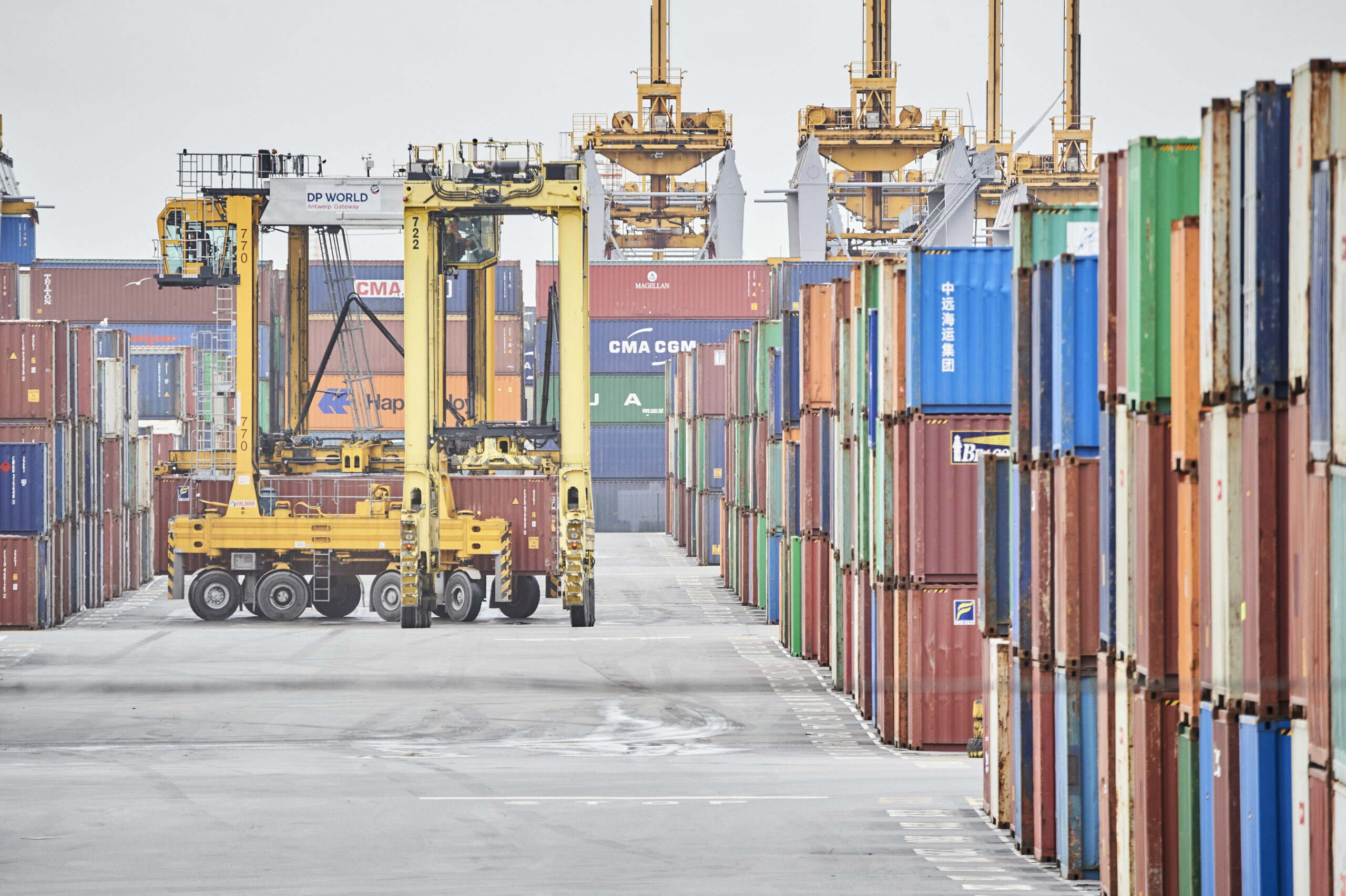Politics
EU trade ministers discuss US tariffs

Trade relations with the US
Ministers held a discussion on the EU’s trade relations with the US, providing guidance for the forthcoming work.
In light of the recent developments, particularly the (partial) imposition of US tariffs, the ministers took this opportunity to assess the impact of these new tariffs and explore the potential for negotiating mutually acceptable solutions, which remains the EU’s preferred approach.
Further to the EU’s response in relation to the US tariffs on steel and aluminium, which is currently under preparation, ministers also addressed the possibility of further proportionate countermeasures if needed.
The EU deeply regrets the new US tariffs and remains committed to dialogue, seeking a negotiated solution acceptable for both sides. Today’s Council shows the member states are united and determined to defend interests of citizens and businesses alike. We support the European Commission and our response will be guided by patience and firmness. All options remain on the table.
Michał Baranowski, Undersecretary of State at the Ministry of Economic Development and Technology of Poland, responsible for Trade
Looking ahead, the Commission and member states will carefully assess any potential new US measures, as well as the latest tariffs announced (a 20% tariff on the EU).
The aim is to ensure that the EU’s approach remains both balanced and effective, protecting our economic interests while keeping the door open for mutually advantageous solutions.
- EU relations with the United States (background information)
Trade relations with China
The Council reviewed the current state and future outlook of EU-China trade relations.
Commissioner Šefčovič briefed ministers on the status of the EU’s trade ties with China following his visit to the country. He reported on his discussions with Vice Premier He Lifeng, Minister of Commerce Wang Wentao, and Minister of Customs Sun Meijung, focusing on how to improve and rebalance trade and investment relations between the EU and China.
China remains a key trading partner for the EU: it is the EU’s third-largest trading partner and the second-largest in terms of trade in goods. However, the growing trade imbalances continue to raise concerns.
The EU-China trade deficit for 2024 reached €304.5 billion; while this is an improvement compared to the 2022 figures (€397 billion), it nonetheless represents a record high in terms of volume. In 2024, Chinese foreign direct investment (FDI) into the EU reached its highest level in the past five years, amounting to €185 billion, while EU FDI in China remained stable at €184 billion.
Politics
Eyes in the Sky: Europe Doubles Down on Satellite Data to Safeguard the Future

In a decisive stride toward bolstering European resilience and crisis readiness, the EU Council today adopted groundbreaking conclusions that place Earth observation and satellite data at the center of civil protection and crisis management across the Union. Behind the closed doors of Brussels, amid mounting environmental disasters, geopolitical instability, and an accelerating climate crisis, ministers made clear: Europe’s security will be safeguarded, in part, from space.
“Space technology is becoming an important pillar of Europe’s security,” said Michał Baranowski, Undersecretary of State at Poland’s Ministry of Economic Development and Technology. “Ensuring real-time, secure, and reliable access to satellite data is essential.”
Baranowski’s words echo throughout a document that might well shape the continent’s technological destiny. The Council’s conclusions call for the full harnessing of Earth observation constellations like Copernicus, blending data from public, private, and commercial sources. This united satellite front, bolstered by artificial intelligence and cyber-secure infrastructures, is envisioned as the keystone of Europe’s response to natural disasters, pandemics, migration flows, wildfires, pollution, and other cascading crises.
Space Data: Europe’s Second Nervous System
Earth observation satellites orbiting silently above Europe now hold the key to anticipating and managing tomorrow’s disasters. From tracking wildfire paths in southern France to predicting crop failure in Romania, or detecting early signs of flooding along the Rhine, these “eyes in the sky” offer a near-infinite stream of high-resolution, real-time data.
Yet, quantity is not enough. The Council’s message is unequivocal: Europe must process better, act faster, and cooperate deeper. This means not just gathering data—but turning it into decisions. To that end, the integration of artificial intelligence becomes indispensable. AI will be tasked with filtering the ocean of satellite input, detecting anomalies invisible to the human eye, and feeding rapid-response systems capable of guiding both national authorities and first responders.
Crisis Prediction in the Age of AI
The Council’s conclusions elevate AI from a technological novelty to a strategic necessity. When woven into satellite-based systems, AI can decipher environmental shifts, model cascading crisis scenarios, and generate predictive alerts. From land degradation and water scarcity to viral outbreaks and geopolitical hotspots, the ability to forecast is no longer science fiction—it is emerging science policy.
But this newfound power demands responsibility. The document calls for full adherence to Europe’s evolving AI regulatory framework, including the AI Act, to ensure that decisions impacting lives are explainable, trustworthy, and secure.
A Fortress in Orbit
As Earth becomes more vulnerable, so do the systems watching over it. Today’s conclusions underscore the importance of protecting satellite data and infrastructure from a rising tide of cyber threats. This is no abstract concern. European and international intelligence agencies have long warned of espionage, sabotage, and cyber intrusions targeting space-based assets.
In response, the Council recommends strong encryption, continuous monitoring, and coordination across national and European cybersecurity bodies to shield the digital lifeblood of satellite operations.
A Whole-of-Europe Approach
The Council’s strategy is more than a policy blueprint—it is a call for union-wide synergy. It urges integration of all existing and future satellite systems, harmonization of data standards, and open cooperation between governments, academia, and industry. Small and medium enterprises (SMEs), often the innovation engines of Europe, are expected to play a pivotal role in developing tools and applications that make satellite data actionable on the ground.
This forward-leaning approach builds upon a series of landmark Council decisions over the past four years—from the 2021 “New Space for People” resolution to last year’s evaluation of the EU Space Programme. Each milestone has added gravity to Europe’s space ambitions. Now, with these 2025 conclusions, the EU crosses a threshold: from recognizing the promise of space, to relying on it for continental security and survival.
The Horizon Ahead
As climate stress multiplies and crises compound, the Council’s vision is clear: Earth observation satellites are not just instruments of science, but instruments of sovereignty. The ability to foresee, react, and adapt to threats—whether meteorological or geopolitical—depends on Europe’s command of the data flowing from its orbital fleet.
“By fostering collaboration,” Baranowski said, “we can create the conditions for stronger security and technological leadership.”
From the command centers of Paris and Warsaw to innovation labs in Tallinn and Lisbon, Europe now faces the task of turning satellite intelligence into real-world action—at the speed of crisis. The sky may no longer be the limit. For Europe, it may be the last line of defense.
Council adopts conclusions on the use of satellite data, in particular from Earth Observation constellations, for civil protection and crisis management.
Source link
Politics
EU Turns Its Gaze on the Porn Giants: Brussels Launches Landmark Investigation to Shield Minors Online

In a decisive move that could redefine the boundaries of digital responsibility, the European Commission has launched formal proceedings against four of the world’s largest pornographic websites—Pornhub, Stripchat, XNXX, and XVideos—for suspected violations of the Digital Services Act (DSA). The crackdown marks a watershed moment in the EU’s mission to forge a safer digital landscape for children.
Citing serious concerns over the absence of effective age verification systems, the Commission suspects that these adult platforms have failed to put in place “appropriate and proportionate measures” to protect minors from harmful content. These include robust systems to shield underage users from explicit material and strategies to mitigate potential harm to children’s mental and physical well-being.
“The online space should be a safe environment for children to learn and connect,” declared Henna Virkkunen, Executive Vice-President for Tech Sovereignty, Security and Democracy.
“Our priority is to protect minors and allow them to navigate safely online. Together with the Digital Services Coordinators in the Member States, we are determined to tackle any potential harm to young online users.”
The First Strike Under a New Law
The DSA, heralded as one of the most ambitious regulatory undertakings in recent years, empowers the European Union to demand accountability from digital platforms. Today’s move against these online titans is the first formal probe under the DSA explicitly aimed at safeguarding children from adult content.
According to the Commission, its preliminary findings reveal systemic shortcomings: a lack of reliable age-verification tools, inadequate risk assessments, and the failure to prioritize child safety in platform design. If confirmed, these breaches could lead to stiff penalties and legally binding corrective measures.
The opening of formal proceedings enables the EU to escalate enforcement actions—ranging from the imposition of interim measures to non-compliance decisions. Platforms could also propose commitments to address the violations, which the Commission may accept.
Stripchat Loses “Very Large Platform” Status
In a parallel but significant development, the Commission announced the de-designation of Stripchat as a Very Large Online Platform (VLOP), after it fell below the 45 million monthly active user threshold for over a year. The site now exits the high-regulation VLOP category, but this doesn’t exempt it from DSA obligations. Stripchat will remain under the scrutiny of Cyprus’ Digital Services Coordinator.
The timing of this de-designation has raised eyebrows among some digital policy observers, as it occurs in tandem with the broader investigation. Yet, Commission officials stress that the procedural outcome follows strict metrics and a request initiated by Stripchat itself.
Coordinated Action Across the Continent
While the Commission focuses its firepower on the biggest players, a coalition of EU Member States—acting through the European Board for Digital Services—has launched a coordinated sweep against smaller pornographic platforms. These fall under the jurisdiction of national Digital Services Coordinators, ensuring the DSA’s teeth bite uniformly across borders.
Together, these actions form an unprecedented EU-wide offensive to combat the growing threat of unsupervised youth exposure to online pornography, reinforcing the principle that child safety online is not optional—it’s an obligation.
Looking Ahead: A Digital Shield for Europe’s Children
The road forward is both technical and philosophical. Beyond legal proceedings, the Commission is developing a white-label age verification app, due this summer, as a bridge until the EU Digital Wallet is operational in 2026. Built to verify users’ age without compromising their identity, the app represents a privacy-first model for digital safety.
This initiative is backed by a public consultation launched on May 12, with draft guidelines urging platforms to proactively adopt child protection mechanisms. These include the use of age estimation technologies, smarter content gating, and enhanced design standards that prioritize the rights of the child.
A Turning Point for Digital Accountability
While the outcome of the investigations remains open, the message from Brussels is clear: the era of unregulated online adult content is ending. The DSA, once just legislative promise, is now a living instrument of enforcement. And the Commission is wielding it with conviction.
In the past, efforts to regulate online pornography often met with inertia, complexity, or political hesitancy. But today, Europe takes a stand—not against the existence of adult content, but against a system that too easily exposes the vulnerable to harm.
If successful, this legal assault on digital indifference may become a milestone moment in Europe’s pursuit of a digital future that is not only free—but safe.
The Commission has opened investigations against 4 large pornographic platforms for suspected breaches of its digital services rules. EU countries are also taking action against smaller pornographic platforms. This will reinforce the EU’s effort to protect minors from harmful content online.
Source link
Politics
EU Launches Landmark €150 Billion Defence Initiative to Bolster Security and Deterrence

In a historic move aimed at strengthening Europe’s strategic autonomy and defence readiness, the Council of the European Union today adopted the Security Action for Europe (SAFE) instrument — a €150 billion financial programme designed to boost joint procurement and investment in the European defence industry.
The new initiative, which enters into force on 29 May 2025, marks the first large-scale coordinated EU effort to address urgent capability gaps, enhance production capacity and ensure rapid availability of critical defence equipment across member states.
“This is not only a success of the presidency, but of the EU as a whole,” said Adam Szłapka , Polish Minister for the European Union. “This unprecedented instrument will boost our defence capabilities and support our defence industry. The more we invest in our security and defence, the better we deter those who wish us harm.”
A New Era of Joint Investment
SAFE is structured around long-maturity loans that will be disbursed to interested EU member states based on national investment plans. The funds are intended to finance large-scale investments in the European Defence Technological and Industrial Base (EDTIB) , with a focus on priority areas identified by the European Council on 6 March 2025.
These include:
- Ammunition and missiles; artillery systems; ground combat capabilities
- Cybersecurity and military mobility
- Air and missile defence systems; maritime capabilities
- Drones and counter-drone systems
- Strategic enablers such as airlift, refuelling, surveillance and space assets
To promote efficiency and interoperability, SAFE encourages common procurement projects involving at least two participating countries. However, given current geopolitical pressures, single-member-state procurements will also be permitted for a limited time.
Opening Up to Partners
A notable feature of SAFE is its openness to third countries. Ukraine and EEA-EFTA nations will be treated on equal footing with EU members, able to participate in joint procurements and supply their domestic industries. Additionally, candidate countries, potential candidates and partners with Security and Defence Agreements — including the United Kingdom — may join procurement efforts.
The regulation also allows for bilateral or multilateral agreements with third states to tailor eligibility conditions where necessary.
Eligibility and Oversight
To qualify for funding, defence products must meet strict criteria. Category 2 systems — including advanced air defences, drones and strategic enablers — require contractors to maintain control over design decisions. Furthermore, non-EU/EEA/Ukraine components cannot exceed 35% of the total product cost.
The European Commission has emphasized that while SAFE promotes European sovereignty, it does not preclude transatlantic cooperation. On the contrary, the initiative aims to strengthen complementarity with NATO and ensure reciprocal access to cutting-edge technologies with trusted allies.
Part of a Larger Strategy
SAFE forms the first pillar of the European Commission’s broader ReArm Europe Plan / Readiness 2030 , which seeks to mobilize over €800 billion in total defence spending through multiple channels:
- Activating the Stability and Growth Pact’s national escape clause
- Making cohesion funds more flexible for defence use
- Engaging the European Investment Bank
- Leveraging private capital
The adoption of SAFE follows the European Council’s March 2025 conclusions calling for increased sovereignty, reduced strategic dependencies and faster response times in equipping European forces.
With geopolitical tensions at their highest in decades, the EU is now taking concrete steps to ensure it can act swiftly and collectively when security is at stake.
As the ink dries on this landmark regulation, all eyes will turn to implementation — and whether Europe can deliver on its promise to become a credible, unified actor in global security.
The Commission welcomes the agreement in the Council on the Security for Action for Europe (SAFE) instrument. The Commission will raise up to €150 billion on the capital markets, providing financial levers to EU countries to ramp up investments in key defence areas.
Source link
-

 EU & the World7 days ago
EU & the World7 days agoArabella Stanton: 5 Things to Know About the Actress Playing Hermione
-

 EU & the World7 days ago
EU & the World7 days agoWho Is Mary Lou Retton? About the Olympic Gymnast
-

 EU & the World6 days ago
EU & the World6 days agoWhat Is Kevin Costner’s Net Worth? How Much the Actor Makes
-

 EU & the World7 days ago
EU & the World7 days agoDoes Emmanuel Macron Have Children With Wife Brigitte?
-

 EU & the World6 days ago
EU & the World6 days ago‘Survivor’ Season 50 Cast: See Which Stars Are Competing
-

 Sports7 days ago
Sports7 days agoRoland Garros: Flavio Cobolli wipes out Cilic, Draper folds a good Bellucci
-

 Sports4 days ago
Sports4 days agoPSG-Inter, Nicolò Barella jokes about Gianluigi Donnarumma
-

 EU & the World6 days ago
EU & the World6 days agoTodd Chrisley’s Kids: Everything To Know About The 5 Children He Shares With Julie








